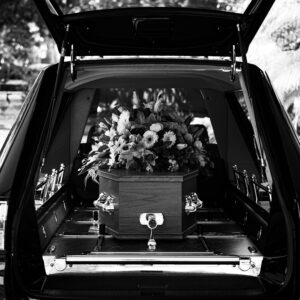Seeking God in Death
By Aziza Robertson, MFT Practicum Student
 I do not consider myself a “morbid person” nor am I one who is fascinated with the afterlife. Yes, I consider myself a Christian and I believe there is a Heaven; however, knowing that I will see my loved ones who are also believers again someday after they pass away is not something that I consider to be comforting. In short, I am one who dreads, has serious anxiety, and catastrophizes everything if I even think someone may be closer to transitioning than I am comfortable with.
I do not consider myself a “morbid person” nor am I one who is fascinated with the afterlife. Yes, I consider myself a Christian and I believe there is a Heaven; however, knowing that I will see my loved ones who are also believers again someday after they pass away is not something that I consider to be comforting. In short, I am one who dreads, has serious anxiety, and catastrophizes everything if I even think someone may be closer to transitioning than I am comfortable with.
…Well, I used to be that person until recently.
A few years ago, I lost one of my cousins to cancer. She was 36 and had just passed the California Bar Exam, and to say she was a fighter is an understatement. She had to do chemotherapy while she was completing her Juris Doctorate, and somehow still managed to finish her degree program on time with no breaks. I admired her tenacity and though she was much smaller than me in stature, her character and personality were larger than life. She was one of the few family members that accepted my quirkiness and I never felt like I had to be anything when I was around her. I could be myself, and it was a relief. Unfortunately, I lost three other family members and friends earlier that year. When the cancer took its toll and my beautiful cousin transitioned to the other side of Heaven, I became that anxious person that dreaded any sign of anything I thought would lead to the death of anyone I knew and loved.
As of late, I have had the opportunity of spending time with my father during his last days. My father is my birthday twin (our birthdays are a day apart) and he is my first best friend. The last 11 years have been a rollercoaster for him and his health. I stopped counting how many times he was hospitalized seven years ago, and there have been many times since then. My initial prayers were for him to regain his ability to walk again after his life-changing surgery in 2010, but there were many other obstacles that I was not made aware of that were more serious. There were issues of mental health, kidney failure, congestive heart disease, chronic obstructive pulmonary disease, and a few other challenges. With all of these, one would think my father was barely hanging on, but I had the most fun with him over the past 10 years. When his health began declining significantly and the discussion of palliative care and hospice became a daily exercise, the fear and anxiety of him transitioning began to loom.
That is, until I finally started to pray and ask for God’s help in handling all of what I was facing. I needed God’s help to finally face what I had been avoiding, unsuccessfully.
In prayer, I felt like the Lord was telling me to trust His process and not my own; to not hold back my emotions but rather try to see Him even though the tears were there. I realized that this process of transitioning that my father had to go through – one we all eventually go through – is a process that does not involve me. It is truly between my father and the Lord. Death is a part of life, and my faith tells me it is also not the end of everything because of Jesus’s sacrifice that took away the power of death. I cannot honestly say that I truly comprehended this until my father’s experience. I can say, however, that I wish I had come to the Lord with this fear sooner. I have been comforted in this process, and though it is hard, I have so much peace. I finally gave my father’s mortality to the Lord, rather than trying to take on everything the doctors were saying and feeling like I am responsible for all of what my father was experiencing. The more I surrendered to the Lord, the less anxious I became. I know that it is in the Lord’s hands and that is the best place for me and my father to be. I also know this road is not an easy one and will be a process for me.
So, as I now embark on this life “after, I am reminded that I need to:
-
Acknowledge the pain that I feel as a result of my loss.
-
Understand that grief can trigger many different and unexpected emotions, not just sadness. The anger, the numbness, the confusion are normal and all a part of the process.
-
Remember that my grieving process will be unique to me and that I have what I need to go through it.
-
Accept and Seek out support from people who care about me.
-
Give myself time that I need to heal.
Aziza Robertson is pursuing a Master’s degree in psychology at The Chicago School of Professional Psychology and a Practicum Trainee at Champion Counseling Center.